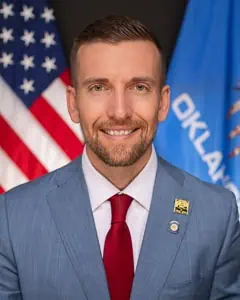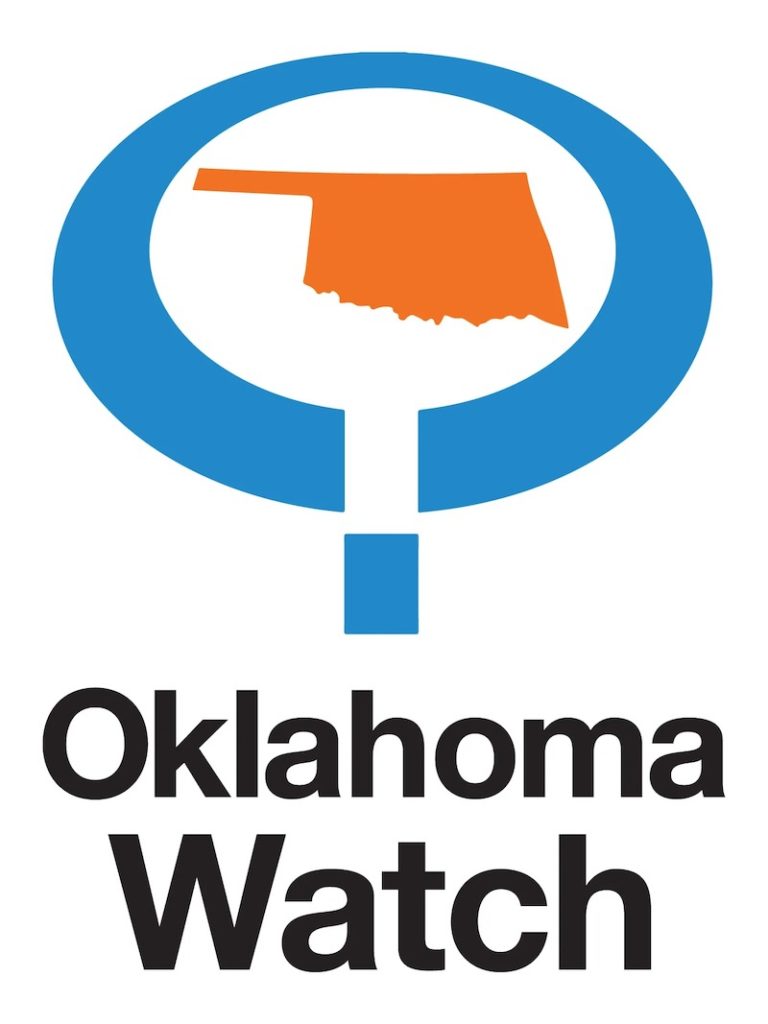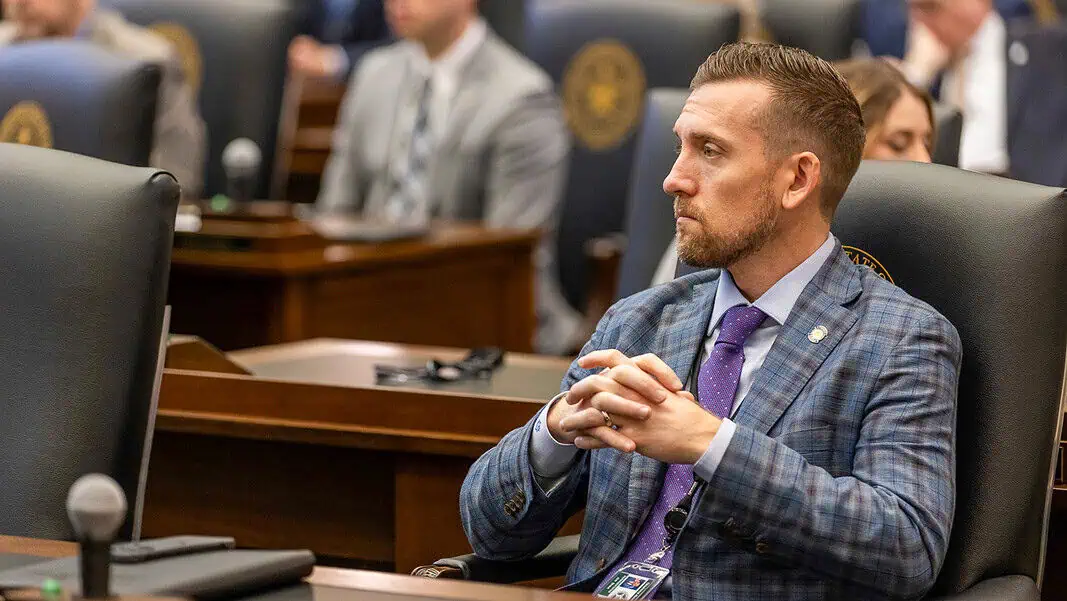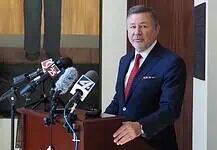OKLAHOMA CITY — An Oklahoma state representative who knocked off a powerful incumbent in last year’s GOP primary is still owed a large debt from his campaign as he continues to lend it money.
The campaign committee for Rep. Jim Shaw, R-Chandler, now owes him $385,000, a huge amount for a freshman House lawmaker. He loaned his campaign another $20,000 in the second quarter, according to reports filed with the Ethics Commission.
It’s not uncommon for candidates to loan money to their campaigns.
Some make the loans to scare off potential opponents and demonstrate their financial might. Others do it to match contributions from constituents to demonstrate their commitment to the campaign effort. But some candidates just don’t like raising money, which, in the current campaign environment, is a perpetual hamster wheel.

Shaw beat Kevin Wallace, the top budget chairman in the House at the time, in an August 2024 primary runoff. Shaw did not face an opponent in the November general election. The GOP primary contest for House District 32, with candidates spending more than $1.1 million, was the most expensive House race in state history. Another $313,000 poured into the race from independent expenditures, mostly to support Wallace. Those donations are unlimited as long as they are not coordinated with candidate campaigns.
Shaw spent more than $415,000 in last year’s elections, from the GOP primary to the GOP runoff. Wallace, a five-term incumbent, spent almost $738,000 in a bid to keep his seat. Wallace did not loan his campaign any money, but he didn’t have any problems raising money from his perch as chairman of the House appropriations and budget committee. About 44% of his contributions came from political action committees. The rest came from individuals.
Shaw said he viewed his campaign loans as an investment in the state and the future of his family. Still, he wasn’t expecting to run such an expensive campaign. Shaw said he’d been told it might take between $80,000 and $100,000 to run a typical House race, with more for a primary runoff. He seeded his campaign with a $20,000 personal donation. Candidates have no limits in contributing to their own campaigns.
“That was something that I wanted to do if people asked that I had some legitimate skin in the game – a lump sum – then anybody else could then choose to donate to my campaign,” Shaw said. “But then along the way, obviously, we loaned quite a bit more, and it was confirmed as the most expensive House race in state history.”

Shaw, who started his career at Chesapeake Energy Corp. as the company became a leader in digitizing records to get an edge in land leasing, joined a former boss at an oil and gas software and consulting company. Shaw became president, chief operating officer and eventually co-owner of Land Information Services LLC before selling the software company in 2022.
“We got a really good opportunity to sell the business to a larger oil and gas software business that covered other components within the oil and gas sector, whether it’s accounting, production, transportation, and the land piece that we offer fit in really nicely with their portfolio,” Shaw said.
Shaw said he’s fine with not recouping the campaign loans. He’s unsure if he’ll need to make large loans for future campaigns.
“Ultimately, we would love to see other like-minded people joining the effort and the movement that we’re trying to build,” Shaw said. “And if we’re able to recoup some of that – great. But if not, it absolutely is in my mind an investment for the state and for my family, my daughters and our future generations.”
Sometimes, candidate loans are evidence that the most money doesn’t always win elections. First-time candidate Kane Smith loaned his campaign $400,000 in last year’s GOP primary for a House seat in south Tulsa. He came in third in a four-candidate primary field in June. Smith’s business interests include banking, insurance and investments.
“Campaigns can get very expensive,” said Smith, who paid off the loans before the primary. “But I had an awesome campaign manager, and he did a really good job of setting expectations. If you want to run a campaign in tier one, it costs less money. If you want to go full tilt doing radio and TV and all kinds of stuff, it’s 10 times more expensive. We had to make some decisions and make the best calls we could at the time.”
Smith credited the winner, Rob Hall, with running a good campaign. Hall spent $59,000 on the race, including a $15,000 loan. Smith said it was unlikely he would run again anytime soon.
“I really didn’t take as good a look as I should have going into it about the strains it can put on your family,” Smith said. “It would take some really unusual circumstances for me to try to run again. I really want to focus on my wife and my son.”
Statewide candidates loan big bucks
Those legislative campaign loans, however, pale in comparison to some Republican candidates running for statewide office. Former House Speaker Charles McCall, of Atoka, has loaned his campaign for governor $1.6 million, according to the latest campaign finance reports. Former Sen. Mike Mazzei of Tulsa loaned his gubernatorial campaign $250,000.
Rob Miller, the recently retired superintendent of Bixby Public Schools, has loaned his campaign $70,000. Miller is running in the GOP primary for state superintendent of public instruction. Meanwhile, Marlow Republican Brad Boles, now a state representative, loaned $61,000 to his campaign for a seat on the three-person Corporation Commission. Boles is running to replace Todd Hiett, who is term-limited.
In the 2022 election cycle, Gov. Kevin Stitt loaned his re-election campaign almost $2 million. Stitt wrote off those loans in June 2023.
Gentner Drummond loaned his 2022 attorney general campaign $1.8 million. Drummond carried $4 million in debt over to his 2026 gubernatorial campaign account. About $2.63 million of that debt was incurred from his unsuccessful 2018 bid for attorney general.
Just ten states, including Texas and California, put limits on candidates repaying personal loans from campaign donations. Candidates in Oklahoma can repay personal loans to their campaigns without limit, although they can’t use later contributions to retire any interest accrued on the loans.
At the federal level, candidates are free to solicit contributions after an election to pay off personal loans to their campaigns. But that’s a relatively new development. In 2022, the U.S. Supreme Court ruled 6-3 in favor of Texas Sen. Ted Cruz, who challenged the constitutionality of a 2002 federal campaign law that limited candidates to a $250,000 limit on loan repayments after winning an election. The majority opinion said the limit burdened a candidate’s free speech, no matter whether they were an incumbent.
“The ability to lend money to a campaign is especially important for new candidates and challengers,” the opinion said. “As a practical matter, personal loans will sometimes be the only way for an unknown challenger with limited connections to front-load campaign spending.”
Oklahoma has typically tried to align itself with federal campaign laws. But the 2022 election cycle drew a record amount of campaign spending, including millions of dollars on independent expenditures. That type of spending has murky disclosures, making it hard to determine which organization or person paid for a campaign ad, mailer or text for or against a candidate.
In 2023, Stitt formed a task force to study election threats and campaign finance in Oklahoma. The task force, alarmed by the amount of independent expenditures in the 2022 campaign cycle, recommended the Ethics Commission lift limits on individual contributions to candidate campaigns. It did not address candidate loans or self-financing.

“Candidates and the political parties that support them are not currently allowed under Oklahoma law to effectively compete against independent expenditures,” the task force said in its report. “Independent expenditure entities are allowed to raise anonymously unlimited amounts of money where candidates and political parties may not.”
Andy Moore, chief executive officer at civic group Let’s Fix This, said the expense of political campaigns deters many from seeking office. Every campaign cycle breaks new records for spending and makes politics more distant for voters, he said.
“Too often, political races are about who can raise the most money, not who will do the best job or be the best representative of their constituents,” Moore said. “Expensive campaigns intimidate regular folks from seeking public office. Nobody wants to be ruled by an out-of-touch wealthy upper class, but I worry we are sliding toward that type of a system.”
The tide may be turning. A group of Oklahoma House lawmakers sponsored a nonbinding resolution earlier this year calling on Congress to give powers back to the states on campaign finance limits. The resolution, by Majority Floor Leader Rep. Josh West, R-Grove, had seven Republicans as co-authors.
“Over the past five decades, the Supreme Court has gradually come to equate unlimited election spending with ‘free speech,’” the resolution said. “This unlimited spending — often hard to trace, and coming from out-of-state and even foreign interests — is drowning out the free speech interests of actual constituents, narrowing debate, weakening federalism and self-governance in the states and increasing the risk of systemic corruption.”
Editor’s Note: This story was updated to clarify that the candidate committee loans are owed to the candidate.

Republished in partnership with Oklahoma Watch under a Creative Commons license. Free Press publishes this report as a collaborative effort to provide the best coverage of state issues that affect our readers.
Paul Monies has been a reporter with Oklahoma Watch since 2017. He covers state agencies and public health. Call or text him at (571) 319-3289 or email pmonies@oklahomawatch.org. Follow him on Twitter at @pmonies.











